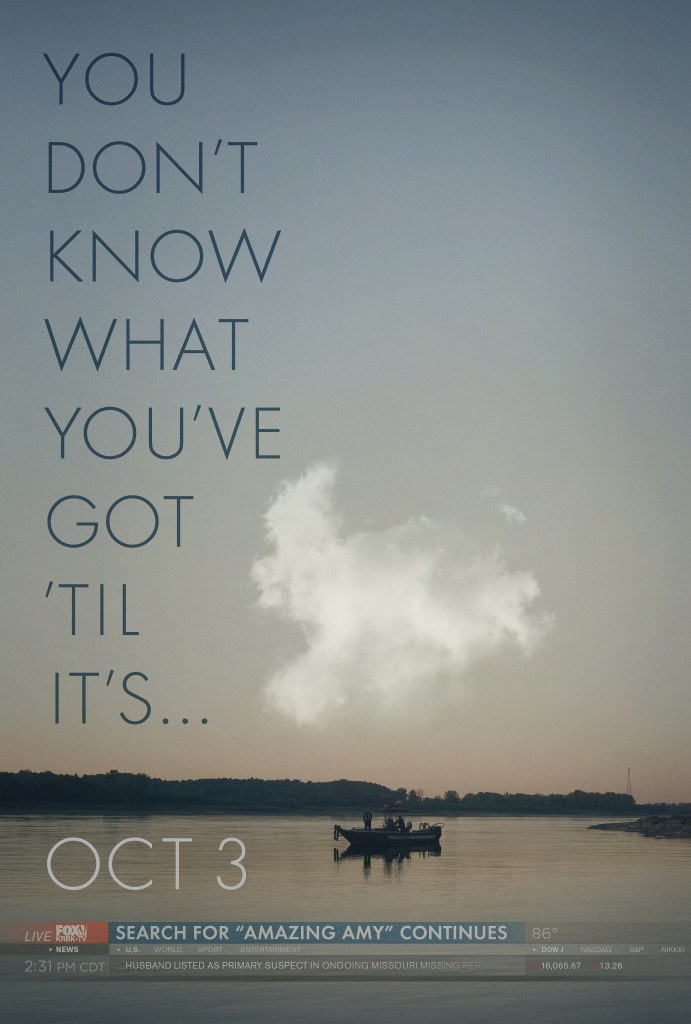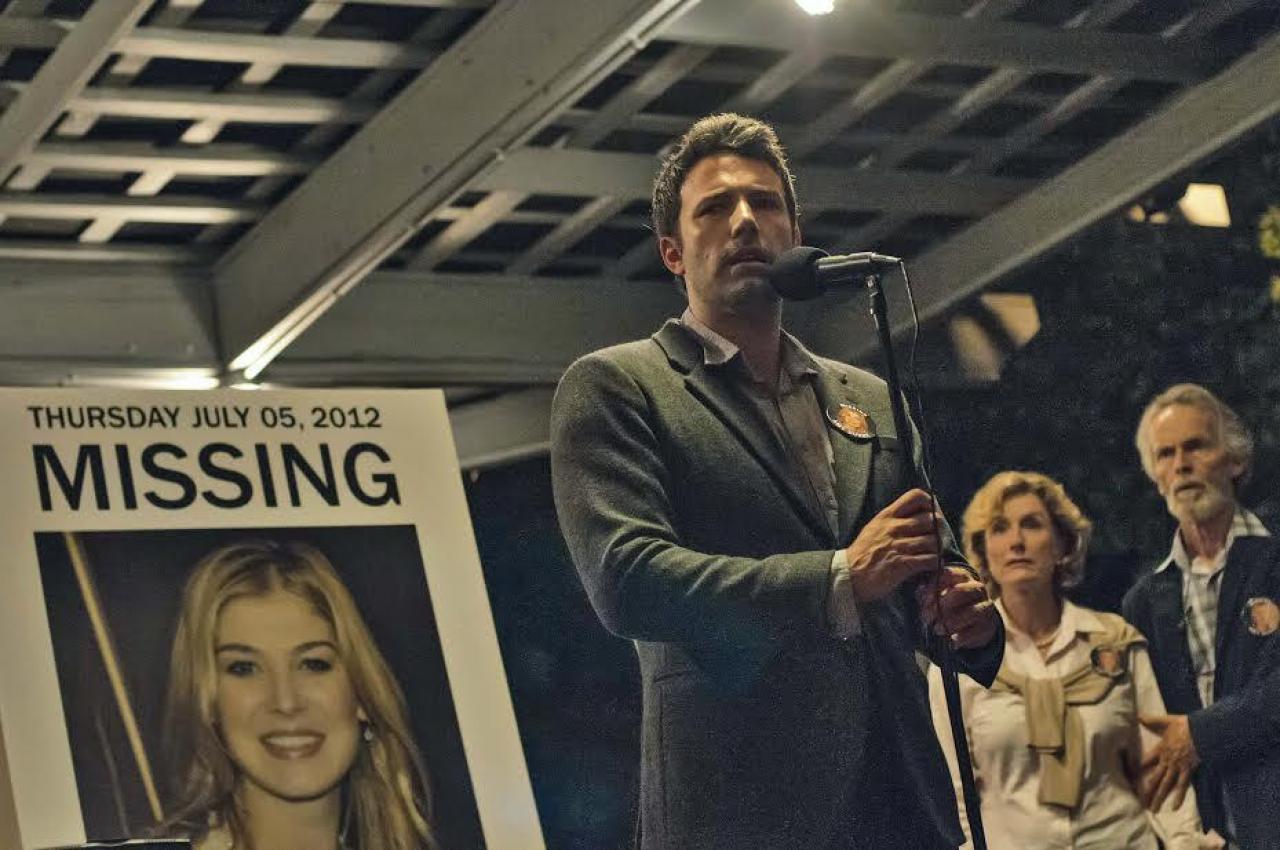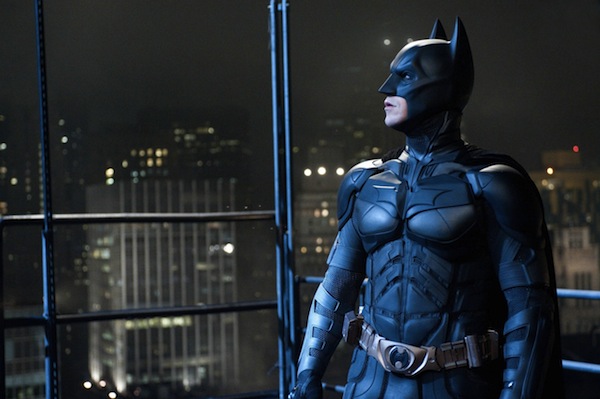Director David Fincher has a knack for many things cinematically. His obsessive attention to detail give his film’s a flawless look and feel. The intense musical scores of each project compliments this obsession, lending each its own sense of dread or even whimsy…but mostly dread. In his 20+ year career he has refined his mannerisms so finely that each sequential project seems more assured, more definitively his. That’s good and bad. In his newest project, the adaptation of the gonzo literary phenomenon Gone Girl, Fincher’s best and worst tendencies are on display. Because of this we are treated to a film that’s all at once a gnarly satire, a domestic horror film and a hysterically funny dark comedy.
If you (like me) are one of the few left not to have read the novel, fear not, the film is definitely fan service but not in the young adult-Twilight sense. Fincher adapted the film from a script written by the novel’s author Gillian Flynn and the collaboration is clear. Flynn worked hard to streamline a dense narrative using conflicting voice-overs along with an array of visual devices. Combined with Fincher’s acute editing style, the 2:30 hour project never relents. We’re presented two of cinema’s most unreliable narrators yet it’s never disorienting but rather exhilarating to watch it unfold.
 Ben Affleck lends his chin to the role of Nick Dunne. In the opening voice-over he strokes his wife Amy’s (Rosamund Pike) head as he wonders what it would be like to crack open her skull and unravel her brains. It’s in these first moments that Fincher establishes the kind of mind set we are dealing with. These are intensely unhappy people. But why?
Ben Affleck lends his chin to the role of Nick Dunne. In the opening voice-over he strokes his wife Amy’s (Rosamund Pike) head as he wonders what it would be like to crack open her skull and unravel her brains. It’s in these first moments that Fincher establishes the kind of mind set we are dealing with. These are intensely unhappy people. But why?
Nick and Amy are a typical-seeming American couple. They met in Manhattan while they both worked as magazine writers (a job that feels like only a unicorn could appreciate at this point.) As the recession hit, so does reality. As Nick and Amy are both laid off they receive the news that Nick’s mother has stage-4 breast cancer and they choose to high tail it back to his hometown Missouri suburb to care for her.
One nondescript morning (a few years in the future) Nick heads to the bar that he and his sister Margo (the Leftovers’ Carrie Coon) own. He swigs down bourbon and opines about the lack of any happy moments in his marriage. His diatribe is interrupted by a call from his watchful neighbor that his cat is wandering around the front yard. When Nick returns home he finds a coffee table smashed and no Amy.
What unfurls beyond this would be a shame to spoil for the uninitiated. Suffice it to say that Fincher has an absolute blast revealing the mystery of Amy’s disappearance. His use of flashback to establish the Nick-Amy dynamic inter-cut with the present investigation works masterfully to weave two dense stories together. The voice overs – read from Amy’s diary – help deepen the context and weave a backstory that starts to unravel just as soon as it begins to take shape. The elliptical nature of the narrative is essential as each reveal carries more weight and shock.
What’s all the more shocking is how funny Gone Girl is. This is one of the darkest meditations on marriage since War of the Roses and it’s hard not to picture Fincher editing it while stroking a large cat in a windowless room. His barbs at domestication and the strain of the late 00’s recession never quite land with the weight intended but the dialogue is sharp. What does land is Fincher’s portrayal of the crusading 24-hour media cycles. It doesn’t take long for the national media to show up at Nick’s doorstep, desperate for any information about America’s sweetheart Amy. Soon cable news is speculating on Nick’s potential motives – in particular a Nancy Grace-parody named Ellen Abbot (played with insane gusto by Missi Pyle) and bringing on panels of psychological “experts” to diagnose his psyche.
While Fincher’s other themes largely don’t resonate, this one does. Watching the media quickly vilify the spouse while creating an angelic vision of Amy with literally NO information leads to some Daily Show/Colbert Nation level laughs. None of this would be possible without the proper actors in place and Fincher continues his casting prowess here as well.
I’m generally not a fan of Ben Affleck as an actor but he is perfect as the affable-oaf Nick Dunne. He’s a self-professed corn fed simpleton whose only purpose seems to be to drink and please other people. His deer in the headlights performance is straight from a pitch-black 40’s noir and he nails it. His counterpart Rosamund Pike as Amy is also perfect as his cultured-New York spouse. Her claustrophobic performance hits all the right notes as you feel the walls of their massive McMansion close around her. Also exemplary are Tyler Perry (not dressed as Madea, thankfully) as Tanner Bolt – the slick New York lawyer, Carrie Coon (the best thing from this year’s the Leftovers) as Nick’s tortured sister and Kim Dickens as the dryly-hilarious Detective Rhonda Boney.
Gone Girl at times nearly suffocates under the weight of a massive plot but for the most part it’s a perverse joy to watch. Fincher – as twisted and brooding as ever – is at home in this text and his confidence behind the camera gives it the grounding it needs, even as we burrow deeper and deeper into the absurdly nihilistic third-act. Gone Girl isn’t Fincher’s best (for my money it’s still Zodiac) but it is his most propulsive and entertaining. After the last month at the movies that we’ve had maybe a jolt like this is just what people need to get back to the theater. This much is certain, Gone Girl is going to kill.





